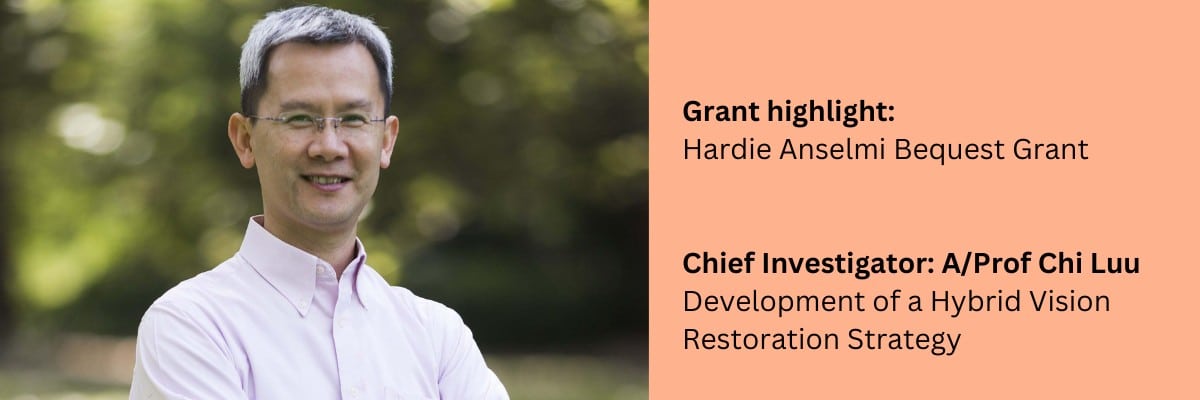
Hardie Anselmi Bequest Grant
Title: Development of a novel hybrid vision restoration strategy
Chief Investigator: A/Prof Chi Luu
Co-investigators: A/Prof Penelope Allen -AVR Fellow-, A/Prof Mohit Shivdasani
Aim
To determine whether retinal stimulation using a combination of light and electrical current (hybrid stimulation) will improve neural activation in the visual cortex compared to stimulation using light alone in eyes treated with optogenetic gene therapy.
Methods
Optogenetic gene therapy targeting the retinal ganglion cells was delivered intravitreally to one eye of a normal sighted preclinical model. Four weeks post-injection, neural activity in the visual cortex in response to light and hybrid stimulation was recorded using multi-unit recording techniques.
Key Results
The initial results showed that hybrid stimulation produced a greater neural activity in the visual cortex compared to stimulation with light alone (Figure 1).
Conclusion
Neural activation in the visual cortex can be improved by combining light and electrical stimulation.
Implications for Clinical Practice/Science and Future Research
The findings warrant further research into a hybrid stimulation approach for retinal stimulation.
Lay summary of outcomes
The findings from our research project indicate that stimulating the retina with light and electrical current enhances neuronal activation in the visual cortex.
Figure 1: Efficacy of hybrid stimulation. (A) An example of one recording channel in the visual cortex depicting multiunit activity in response to a single pulse of retinal stimulation with light alone (blue) versus hybrid stimulation (red) of the same eye. Dashed line indicates onset of stimulation. (B) Peristimulus time histogram of multiunit visual cortex activity in response to light and hybrid stimulation. Hybrid stimulation is associated with a greater activity in the visual cortex compared to light stimulation.
About the Chief Investigator
Associate Professor Chi Luu is a clinician scientist with a research focus on age-related macular degeneration (AMD) and vision restoration strategies for inherited retinal degenerative conditions.
His research interests include age-related macular degeneration (AMD) and vision restoration approaches for blinding retinal conditions. He conducts both preclinical and clinical studies to better understand the pathophysiology of disease, and to evaluate safety and efficacy of novel interventions.
A/Prof Luu’s expertise includes retinal and cortical electrophysiology, visual psychophysics (dark-adaptation and scotopic chromatic perimetry), retinal imaging (OCT), and microsurgery for device implantation and delivering drugs to the retina by microinjection technique in preclinical models.
In recognition of his contributions to eye research, he has recently been elected as a member of the Macula Society and a Fellow of the Association for Research in Vision and Ophthalmology (FARVO).
